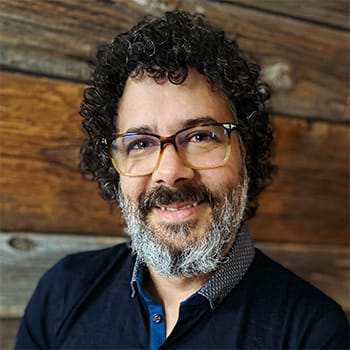
Vivian Choo MSc, MD
Family Physician
Women’s College Hospital
Tristan Lawson Distinguished Fellow in Physician Professional Development in Child Nutrition
Dr. Vivian Choo is a Family Physician working at Women’s College Hospital. She completed her MSc in the Department of Nutritional Sciences at the University of Toronto, and her residency training as well as fellowship in education scholarship with the University of Toronto’s Department of Family and Community Medicine. She contributes to physician education work in the Joannah & Brian Lawson Centre for Child Nutrition, where her primary interests are in the application and promotion of nutrition education in primary care for patients and providers.

Andrea Glenn RD, PhD
Postdoctoral Research Fellow
Department of Nutrition
Harvard T.H. Chan School of
Public Health and Department of Nutritional Sciences
University of Toronto
Andrea Glenn is a Canadian Institutes of Health Research (CIHR)-funded Postdoctoral Research Fellow and Registered Dietitian (RD) at the Department of Nutrition at the Harvard T.H. Chan School of Public Health and the Department of Nutritional Sciences at the University of Toronto.
She received her MSc and PhD in Nutritional Sciences from the University of Toronto and completed her RD training at Mount Sinai Hospital in Toronto. Her main research interests include addressing questions of public health and clinical importance in relation to plant-based dietary patterns and cardiometabolic disease risk, particularly cardiovascular disease and type 2 diabetes, and healthy aging. She is currently exploring these areas by incorporating traditional epidemiological analyses, clinical trial data, and metabolomics. Dr. Glenn also has a variety of experience in coordinating clinical trials, developing knowledge translation tools for patients with cardiometabolic disease, mentoring students, and teaching.

Tawfik Shehata
Chef
Born in Egypt and raised in Canada, Chef Tawfik brings over 30 years of professional culinary experience to his role. Chef Tawfik acquired his broad and distinctive culinary vision at many of the city’s finest establishments including Winston’s, Scaramouche, Auberge du Pommier, Boba, Truffles at The Four Seasons, Taboo and renowned resorts in Jamaica and Bermuda. Voted one of the “Top Ten New Chefs in Canada” by enRoute Magazine and with appearances on numerous episodes of the Food Network Canada, CBC, and SUN TV, Chef Tawfik is at the forefront of today’s culinary experience. His unique menu items have been featured in publications such as Canadian Living, City Bites, Tonic Magazine and Healthy Directions. And most recently won a culinary competition (2023) call Milk Master on CTV.ca. He has contributed to the Huffington Post and M&IT Magazine and been a guest Chef on Rogers Daytime Peel and Daytime Toronto TV shows as well as Downright Domestic. He is also a part-time instructor at both George Brown and Humber Colleges. He was selected to speak at the Catersource Trade Show and Conference in Las Vegas and to host the release of the Go Barley! Cookbook, for which he wrote the forward. As a writer, teacher and spokesperson for Foodland Ontario, Chef Tawfik shares his passion for sustainable agriculture and his commitment to supporting local producers.

John Sievenpiper MD, PhD, FRCPC
Associate Professor,
Department of Nutritional Sciences, University of Toronto
John Sievenpiper is a Clinician Scientist who holds appointments as an Associate Professor in the Departments of Nutritional Sciences and Medicine and the Lifestyle Medicine Lead in the MD Program at the University of Toronto and a Staff Physician in the Division of Endocrinology & Metabolism and Scientist in the La Ka Shing Knowledge Institute at St. Michael’s Hospital.
Dr. Sievenpiper completed his MSc, PhD, and Postdoctoral Fellowship training in the Department of Nutritional Sciences at the University of Toronto. He completed his MD at St. Matthew’s University followed by Residency training in Medical Biochemistry at McMaster University leading to his certification as a Fellow of the Royal College of Physicians of Canada (FRCPC).
He has established an internationally recognized research program focused on using randomized controlled trials and systematic reviews and meta-analyses to address questions of clinical and public health importance in relation to diet and cardiometabolic disease prevention with a particular interest in the role of sugars, carbohydrate quality, and plant-based dietary patterns.
He is directly involved in knowledge translation with appointments to the nutrition guidelines committees of Diabetes Canada, European Association for the study of Diabetes (EASD), Canadian Cardiovascular Society (CCS), and Obesity Canada. He is the recipient of numerous awards including a CNS Young Investigator Award, PSI Foundation Graham Farquharson Knowledge Translation Fellowship, Diabetes Canada Clinician Scientist Award, Banting & Best Diabetes Centre Sun Life Financial New Investigator Award, and CIHR-INMD/CNS-New Investigator Partnership Prize. He has authored more than 200 scientific papers and 17 book chapters.
Faculty Disclosure
It is the policy of the University of Toronto, Temerty Faculty of Medicine, Continuing Professional Development to ensure balance, independence, objectivity, and scientific rigor in all its individually accredited or jointly accredited educational programs.
Speakers and/or planning committee members, participating in University of Toronto accredited programs, are expected to disclose to the program audience any real or apparent conflict(s) of interest that may have a direct bearing on the subject matter of the continuing education program. This pertains but is not limited to relationships within the last TWO (2) years with not-for-profit organizations, pharmaceutical companies, biomedical device manufacturers, or other corporations whose products or services are related to the subject matter of the presentation topic.
The intent of this policy is not to prevent a speaker with a potential conflict of interest from making a presentation. It is merely intended that any potential conflict should be identified openly so that the listeners may form their own judgments about the presentation with the full disclosure of facts.
It remains for the audience to determine whether the speaker’s outside interests may reflect a possible bias in either the exposition or the conclusions presented.
